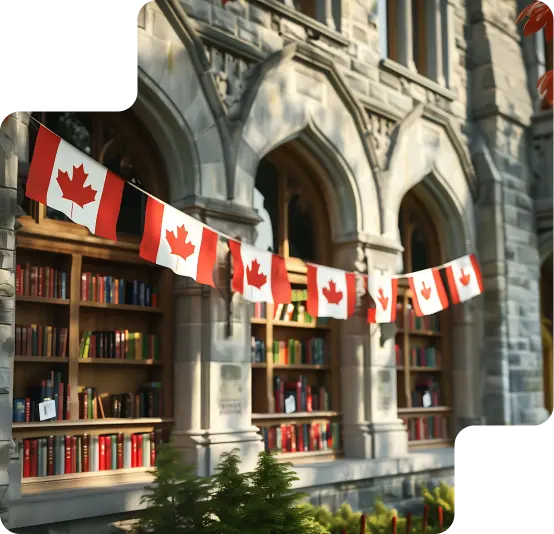



With world-class education and an exciting campus life, Canada is a melting pot of cultures with lots to offer and welcomes international students with open arms.

As you embark on your journey to fulfilling your aspirations. We bring to you Auxilo Student Universe - A world full of aspirations, a world of dreams! You can now know more about the universities we have funded students in, across different locations. It is a comprehensive portal that transports you into a universe of opportunities!
Explore your opportunities all over the world, in just 2 easy steps!

Duration: 1-1.5 Years
Tuition Fees: INR 16 Lakh
Exams Accepted: GMAT : Accepted, GRE : Accepted
Duration: 1-1.5 Years
Tuition Fees: INR 16 Lakh
Exams Accepted: GMAT : Accepted, GRE : Accepted
Duration: 1-1.5 Years
Exams Accepted: GMAT : Accepted, GRE : Accepted
Duration: 1-1.5 Years
Tuition Fees: INR 16 Lakh
Exams Accepted: GMAT : Accepted, GRE : Accepted
Duration: 1-1.5 Years
Exams Accepted: GMAT : Accepted, GRE : Accepted

The Finances (Avg Student Loan): 1,600,000
The Big Test: GMAT
The Grades: 690


For doctorate programmes, most universities require a Master's degree in that subject. However, universities might consider your application without a Master's degree in rare cases.


First Steps
Crack the Exams
It's time to Apply
What Next
Visa and Money matters
Process for education loan for Canada once you get your acceptance letter. Gather paperwork for your student visa. Check visa requirements. Apply for a student visa on time. Consider the time taken for visa processing as well.
Get ready to fly
Book airline tickets. Arrange for an International Debit/Credit card. Gather all your required documents, their photocopies and check the pre-departure checklist.




At Auxilo, we pride ourselves on our student-friendly approach during student loans, right from providing pre-visa disbursement loans, and fastest abroad loan sanctions to issuing proof-of-funds to those who wish to study in Canada
We cover all education related costs, such as tuition fees, examination fees, living expenses, travel expenses & pre-admission costs.
Our pre-admission loans offer 'proof of funds' which helps with securing Confirmation of Admission at their chosen University.



Aspiring Indian scholars aiming for the September intake in illustrious Canadian universities should embark on their application journey by April of the preceding academic year. This timeframe allows for diligent research into various programs, adherence to the critical deadlines, and the arrangement of financial support, including education loans, to facilitate their higher education endeavors in Canada.
International students can work while studying in Canada, but they must have a valid study permit and work permit. They are allowed to work on campus for up to 20 hours per week during regular academic sessions and full-time during scheduled breaks.
The September admission cycle is highly favored by students from India due to its alignment with the conclusion of India's academic year, making it a strategic period to transition into overseas education. This cycle not only opens doors to a plethora controlled array of programs but also integrates seamlessly with the principal intake period in Canadian education, offering benefits such as scholarship opportunities and a vibrant campus life, enriching the overall academic journey.
To study in Canada, international students need a study permit. They might also need a temporary resident visa or an electronic travel authorization. Plus, they must pass the school's academic and language tests.
Canadian educational institutions present three principal entry points for international scholars, including those from India, looking to pursue their academic quests abroad: September, January, and a limited number in May. The September intake stands out as the most comprehensive, offering an extensive selection of courses and programs, followed by the January entry, with May providing options predominantly for specialized courses, catering to a diverse range of academic preferences and timelines.
With less than a month to go before the European Union enacts new consumer privacy laws for its citizens, companies around the world are updating their terms of service agreements to comply.
The European Union’s General Data Protection Regulation (G.D.P.R.) goes into effect on May 25 and is meant to ensure a common set of data rights in the European Union. It requires organizations to notify users as soon as possible of high-risk data breaches that could personally affect them.